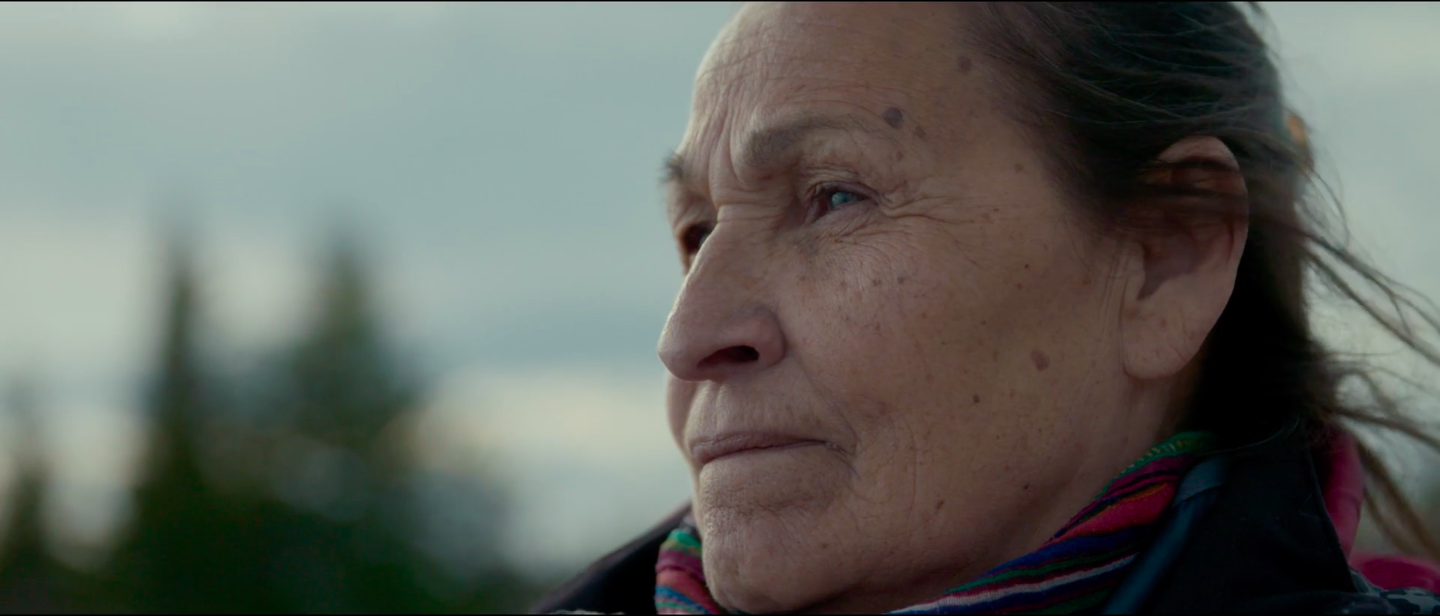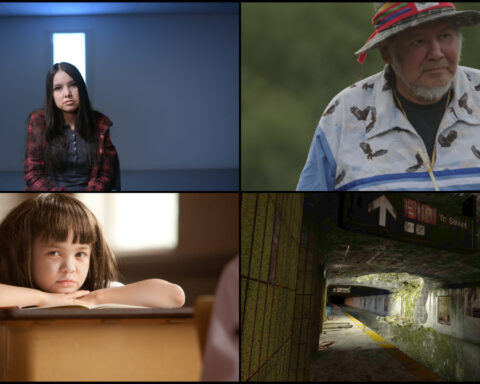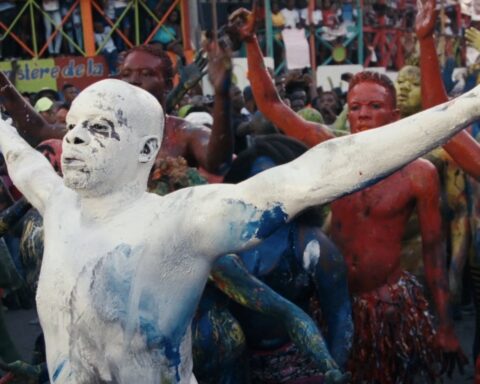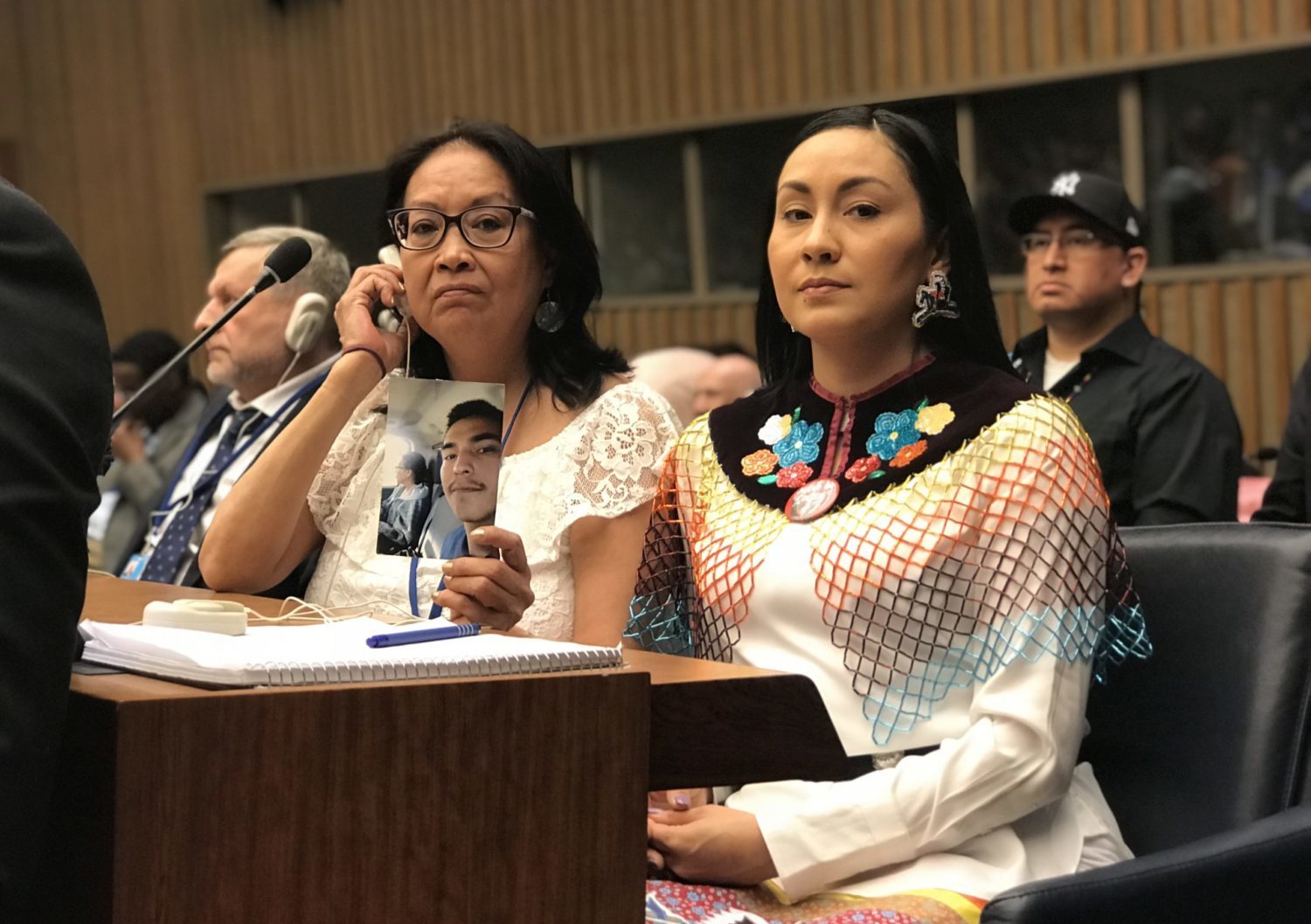Call Me Human
(Canada, 78 min.)
Dir. Kim O’Bomsawin
Kim O’Bomsawin’s latest film is a stunning profile of a prolific Innu poet – but in a way, it’s not. “The word ‘poetry’ doesn’t exist in Innu,” muses Joséphine Bacon, the subject of Call Me Human, who is referred to as a poet but eschews the title herself. “I don’t think we needed the word ‘poetry’ or ‘poem’ in our language, because we were poets, simply by living in harmony with the land.”
This distinction represents what is at the heart of the film: Bacon’s immense efforts to salvage and preserve her elders’ ways of thinking and traditions, which were stamped out by Canadian colonization. The 74-year-old is a captivating subject with an enchanting sense of peace about her. She often ends anecdotes about times of hardship, like sleeping in gas station bathrooms when she first arrived in Montreal, with a little grin or a shrug, as if to say, “oh well.” She is wise and forward-looking, focused on preserving the stories of her elders for the next generation.
The film follows Bacon as she trudges through the snowy streets of Montreal and treads lightly on the pink and purple lichen of the tundra. We accompany her through media appearances and readings, but her poems and words resonate most against the backdrop of her homeland. The switch between the city and the natural world mirrors the duality of Bacon’s life, who was born in the Innu community of Pessamit but was sent to residential school at the age of five, where she spent 14 years.
In part of the film, she and Ilnu-Québécoise poet Marie-Andrée Gill revisit the region along the coastal mouth of the Saint Lawrence River as Bacon shares nuggets of traditional wisdom and sprinkles walks with Innu vocabulary lessons. They revisit the site of the Sept-Îles residential school, where Bacon recounts her experience while remaining somewhat reserved. The film touches on Bacon’s experience in residential school without allowing that tragic situation to overwhelm the film. It remains, like Bacon, focused on her efforts to revive and preserve her culture.
Call Me Human takes the viewer on a heartening journey alongside a woman and her life’s work of piecing together the fragments of herself that were stolen from her. It is worth watching to witness moments like the sparkle in her eyes as she digs through a trout’s head, sharing the significance of certain bones and what they represent. An image that will stay with you is that of Gill carrying Bacon on her back over the vast, colourful moss landscape. “I carry my grandmother on my back, my knees buckle under so much wisdom,” Bacon reads.
Call Me Human is available on DVD Dec. 11 and on VOD Dec. 15.













